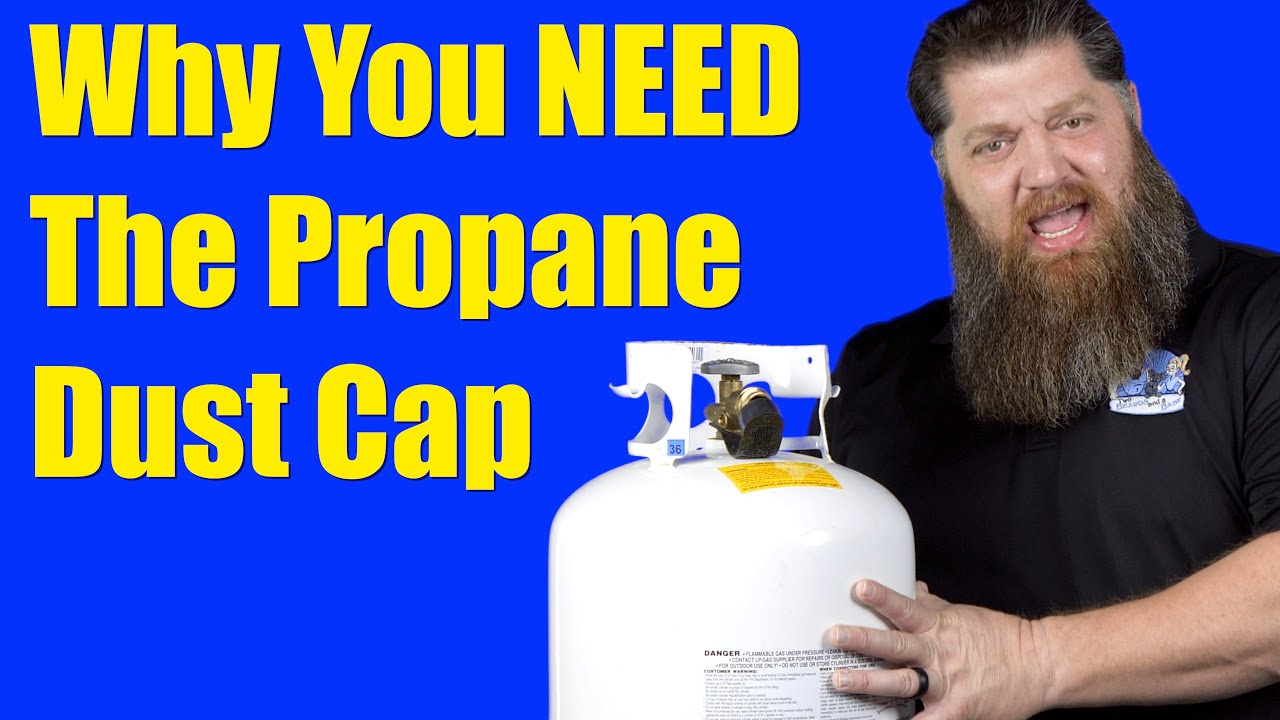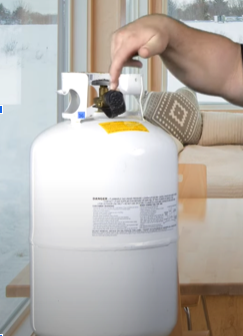Get your RV Technician Certification in as little as 5 weeks!

So it’s cold, and now we are running out of propane often. I know we’ve talked a little bit about propane, but I want to discuss the all-important propane dust cap with you, which is this right here:

So, why is this so important? What does dust do? Well, since it’s wet outside, it’s not just a dust cap; it also doubles to keep water out of the lines. Now, propane vaporizes at -44 degrees, and some of you may hear it as boiling. The reason I say vaporizing is because some of you will be confused and say, “Well you said it freezes but it actually boils.” Here is the thing that you need to know: propane turns to a vapor at -44 degrees. If I have dust or water sitting inside the service valve and go to hook it up to my rig, that dust and/or water gets trapped inside. The first thing that’s going to happen when I open the propane tank is the dust and water will instantly freeze, and if it freezes you’re going to hear all kinds of noise loud enough to hear inside your rig.
When transporting and filling your D.O.T. cylinder, before you leave and as soon as you disconnect the tank, put your dust cap in place. When you have it filled, hopefully the person filling the tank does you the courtesy of replacing the dust cap. If not and you don’t do it yourself, before you hook the tank back up you’ll inspect the valve and ensure it’s completely clean. It doesn’t hurt to do the same with the excess flow valve, as we don’t want any contaminants being introduced to the tank.
Now, let’s talk noises. There’s about 3 different noises that a propane tank makes. The first one we may hear is a hissing sound. If we hear hissing, there’s a leak somewhere. The first thing you’ll want to do is ensure that the service valve is completely tightened. Now, if you hear a humming instead of a hissing, that means there’s too much propane inside the tank. We should be filled at a maximum of 80% of the maximum liquid level. So, if we have anything above that, and because it is turning into a vapor, we’re hearing the humming noise. The third and final noise I want to discuss is something we likely won’t hear often, and that’s knocking. If you ever hear a knocking coming from your tank, that means there’s unequalized pressure throughout the system that needs to be equalized by getting the air out of the lines. Again, very seldom will we hear knocking coming from a D.O.T. tank; it will usually be the boiling, humming or hissing. If you have another noise that isn’t the knocking, the chances are that your valves are dirty and you’ll need to remove the dust cap, inspect the valve and clean it out as needed and always replace the dust cap when you head out onto the road.
And there’s your Tech Tip!
If you would like to be able to fix the majority of the problems on your RV, or let’s say you want to open a business and become a certified technician or inspector? Head over to our website at www.nrvta.com, select the programs tab and get started today!
Get Registered Today!
Talk to a student advisor to learn more!
